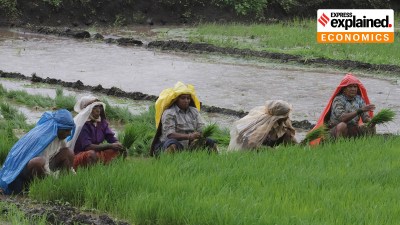Fire on the mountains
The bombs began falling on Baghdad the day before Nevroz, the Kurdish New Year festival March 21. I recall the Kurds I met at a chaikhana ...

The bombs began falling on Baghdad the day before Nevroz, the Kurdish New Year festival March 21. I recall the Kurds I met at a chaikhana on the road to Samarkand, Uzbekistan, in the spring of 1999. They were Iranian Kurds. They told me that their country, Kurdistan, an area of about 533,000 sq km, was divided after World War I into five regions, between Iraq, Iran, Turkey, Syria and Armenia.
The scent of jigdah flowers had made the local Uzbeks mad with spring fever and the steppes were red with poppies. The chaikhana owner very sweetly asked me to sing a Hindi song and nothing loath, I sang 8216;Ae mere pyaare vatan8217; which everyone broadly understood because of its Persian content. That8217;s when the Kurds came over to chat. 8220;Our first day of spring is Nevroz,8221; they said. 8220;It is our festival of faith.8221; Nevroz, meaning 8220;new day8221;, had been a national event in the region since 612 BC.
8220;Well, our Parsis celebrate it too, they brought it from Fars,8221; I volunteered. 8220;It is the day Kurdistan was born,8221; they said, referring, as I later found out, to the revolt of the Kurdish people against the Assyrians way back then the century of the Buddha!. We shared sour laddoos of hard, dried yogurt, a popular Uzbek snack. I remember I said something silly about how Indians loved 8216;curds8217; and they even wrote it down, laughing. I never saw my wayfarers again, but I too noted a name they gave me: Kavah. In the Jewish faith, 8216;kavah8217; means 8220;awaited for8221;. To the Kurds, it is the name of a national hero. The legend goes that an evil king called Zohak whose name now symbolises cruel tyranny had enslaved the Kurdish people. Kavah, a blacksmith beloved of the people, led them to Zohak8217;s gates. Like Krishna with Kamsa, Kavah overcame Zohak8217;s guards and dragged him off his throne. He killed him with a hammer blow. Fires were lit on top of the mountains to let the people know that Zohak was dead and freedom was theirs.
Since that day, the first day of spring, Nevroz has been an article of Kurdish faith, celebrated across its partitioned regions except in Turkey, where it8217;s apparently been banned since 1923. Self-immolation 8212; so painfully familiar to Asia as a mode of protest 8212; has been the way many young Kurds have chosen to celebrate Nevroz. In 1988, four days before Nevroz, over 8,000 Kurds were reportedly killed by chemical weapons, at Saddam8217;s bidding. Nobody said anything, though all the 8216;crusaders8217; of today knew. They also knew that Kurdistan has the world8217;s sixth largest oil reserve and rich mineral deposits. As the mountains burn again, is this 2614-year-old nation praying 8212; in both northern Kurmani and southern Sorani dialects 8212; for its awaited one, its Kavah?
- 01
- 02
- 03
- 04
- 05






























